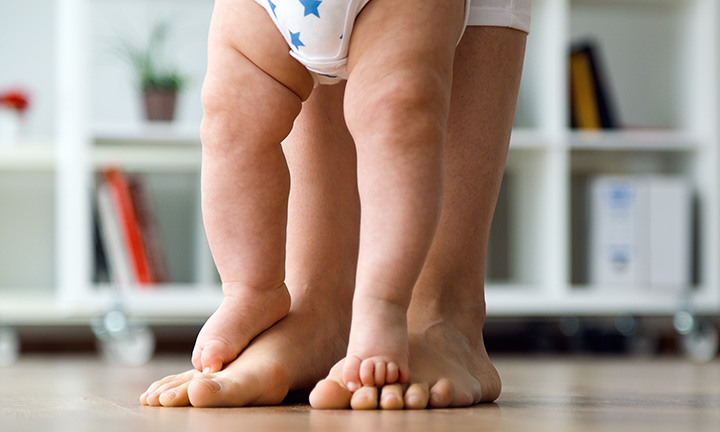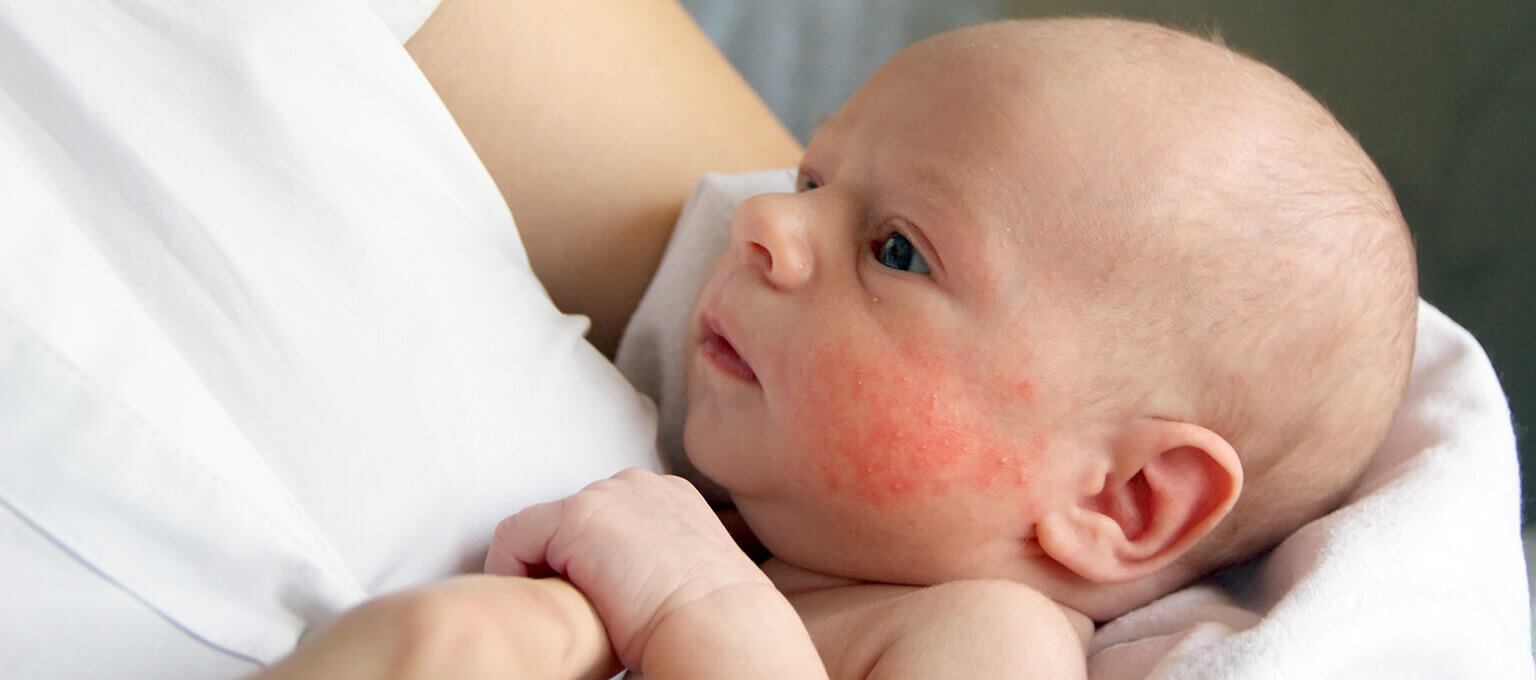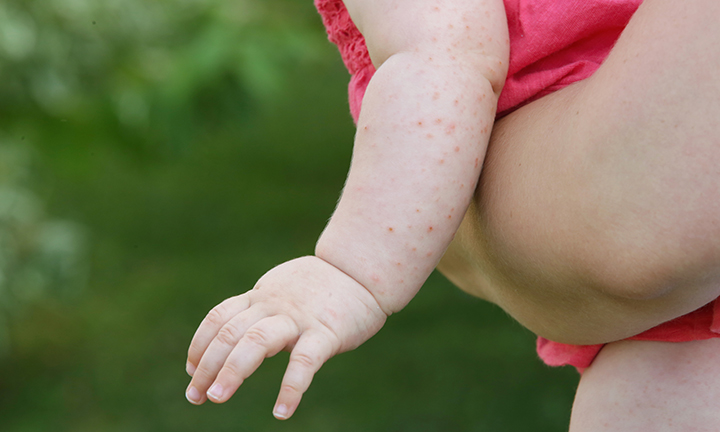
All About Baby and Newborn Constipation
As with adults, constipation can also affect newborn and older babies, especially during weaning. Read on to discover some of the signs of constipation and learn how to help your baby find relief if they’re struggling to poo.
What Is Constipation in Babies?
Constipation is when your baby finds it difficult or even painful to poo, or is unable to pass a stool. Your baby may be constipated if they experience hard, dry bowel movements. If your baby is constipated, bowel movements may be more infrequent than what’s typical or normal for your baby.
To understand baby constipation, it’s important to know what baby poo is usually like.
Every baby is different, and the frequency and consistency of your baby’s bowel movements can vary from day to day – there’s a broad range of what’s considered normal – but once you get used to your little one’s bowel movements, you’ll find it easier to recognise what’s normal (or not) for your child.
As a general rule, when everything is regular, breastfed babies tend to have more frequent and softer bowel movements than babies who are fed with formula. Although your breastfed baby may average two or three bowel movements a day, they may also go for as long as 7 to 10 days without a poo, but still not be constipated.
Either way, until your baby is weaned, their stools will typically be soft and pass easily. After you start to introduce solid foods, the poos will become firmer and less frequent. It’s at this point that constipation may be more likely to strike from time to time.
Because all baby’s bowel movements are different, when you’re trying to decide whether your baby or older child has constipation, it’s more important to look at the consistency of the poos – how hard or soft they are – rather than how often or easily the bowel movements occur.
Remember, if your baby is straining to poo or crying during bowel movements doesn't necessarily indicate constipation; it could be because they haven’t learned to properly relax the pelvic floor muscles to let the poo out.
What Are the Signs of Constipation in Babies?
Toilet-related questions are common amongst parents and it’s especially common to ask, ‘Is my baby constipated?’ And because our little ones can’t always communicate their needs with us, it’s important to look out for the tell-tale signs that something is amiss. Check out the following signs that may indicate your baby is constipated:
What Causes Constipation in Babies?
If you’re wondering ‘Why is my baby constipated?’ or when to worry about baby constipation, read on to find out some possible causes. It’s important to consult your child’s GP or health visitor for a diagnosis and to answer any of your concerns.
How Can You Help Your Constipated Baby?
If you think your newborn baby or older infant is constipated, you may be wondering how to relieve constipation quickly to help them feel comfortable again. Before trying any of our tips below, it’s important to contact your baby’s GP or health visitor for more advice. Treatment for constipation also depends on your child’s age, for example, adding more fibre into your little one’s diet is only possible once they start eating solid foods, which is generally after 6 months of age.
Take a look at how to help your newborn and older baby poo a little easier:
Offer Water
If you’re formula feeding your baby, offering a little water between feeds may help, although you shouldn’t dilute the formula itself. When adding water to powdered formula, it’s important to follow the instructions on the packaging carefully to ensure you don’t add too much or too little water. If your baby is less than 6 months old, the water you give them should be boiled and cooled back down again to sterilise it. Breastfed babies who are not yet on any solids don’t need additional water between feeds. Ask your health visitor or doctor about whether you should be giving your baby extra breastfeeds if you suspect dehydration. Once your baby is eating solid food, offer extra sips of water from a free-flow cup during meals to ensure your little one stays nicely hydrated. Keep in mind that water or other drinks shouldn’t be used as a substitute for breast milk or formula as your child’s main drink until they’re fully weaned.
Give a Tummy Massage
Ask your child’s GP or health visitor how to gently massage your baby’s tummy for some welcome constipation relief. Abdominal massage is a great way to help ease constipation (even in adults), as it may help move things through the intestine, soften stools and relieve cramps or wind.
Try Leg Exercises
With your baby lying on their back, gently move your little one’s legs in a bicycling motion. This can stimulate the stomach muscles and move things along.
Give Older Infants Fruit Juice
If your baby is weaned, small amounts of diluted, preferably unsweetened fruit juice such as apple or pear can also help. These juices contain sorbitol, which can help to relieve constipation in babies. (Avoid giving prune juice to babies under 9 months old as it contains a bowel irritant.)
Try Certain Fruits and Vegetables
Many fruits and vegetables are high in fibre, which helps make stools softer. Once your baby is eating solid foods, give them pureed foods such as prunes, pears, peaches and peas. These can help with constipation since they contain more fibre than other fruits and vegetables. But, of course, introducing a variety of fruit and vegetables once your baby is eating solids is a great way to help relieve constipation. Some great vegetable options include cooked (until soft) broccoli, carrots and butternut squash, or for fruit, try bananas, blueberries and strawberries.
Introduce Cereals
Speaking of fibre, many cereals are also high in fibre and a great option if you’re wondering how to help your baby poo. Try feeding your child porridge, wholewheat, multigrain or bran-based infant or breakfast cereals once they’re eating solid foods. These are another great source of dietary fibre.
Ask Your Doctor About Laxatives
If none of these remedies or dietary changes seem to be helping, depending on your baby’s age their doctor may recommend or prescribe a laxative medicine to help constipation.
Positions to Help Your Newborn Poo
As we mentioned above, one way to help relieve constipation in your newborn is to try a position that may get things moving. This involves lying your baby down on their back and gently moving their legs as if they’re riding a bicycle. This position may help to stimulate the stomach muscles and intestines, which may in turn stimulate a bowel movement.
When Should You See the Doctor?
The earlier your child’s constipation is treated, the sooner it is likely to clear up, so it’s always advisable to see a doctor or talk to your baby’s health visitor as soon as possible if you suspect things are getting a little blocked up.
The Bottom Line
Constipation is more common among babies who have started weaning. If your baby is passing hard poos, or if it’s been an unusually long time between poos (based on what’s normal for your baby) speak to your health visitor or doctor for personalised advice.
Depending on your baby’s age, giving more water to keep your baby hydrated, cycling your baby’s legs to stimulate a bowel movement, or giving certain fruit juices or high-fibre foods may help get things moving again.
Although constipation can be uncomfortable for your baby, if you spot the signs of constipation in good time and make some simple changes to your little one’s diet or fluid intake, it should resolve quickly.
- https://www.nhs.uk/conditions/pregnancy-and-baby/constipation-and-soiling/
- https://www.gpref.bedfordshire.nhs.uk/media/82562/constipation%20in%20children%20patient%20leaflet.pdf
- https://www.nhs.uk/start4life/baby/breastfeeding/breastfeeding-challenges/constipation/
- https://www.wchc.nhs.uk/content/uploads/2020/04/Understanding-childhood-constipation-in-Infants-and-Toddlers.pdf
- https://what0-18.nhs.uk/professionals/childrens-nurses/constipation
- https://www.nhs.uk/conditions/pregnancy-and-baby/potty-training-problems/
- https://www.nhs.uk/conditions/pregnancy-and-baby/drinks-and-cups-children/
- https://www.nhs.uk/conditions/pregnancy-and-baby/solid-foods-weaning/
- https://www.wsh.nhs.uk/CMS-Documents/Patient-leaflets/NutritionandDieteticService/5806-1HighFibreDietforChildren.pdf
- https://www.nhs.uk/start-for-life/baby/weaning/what-to-feed-your-baby/from-around-6-months/
Read more about Baby
Join Pampers Club and get:
















